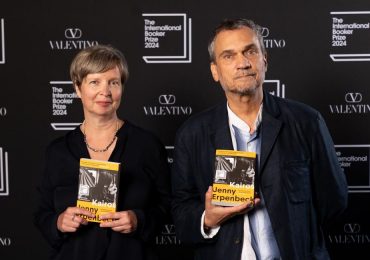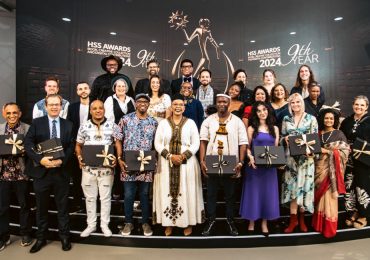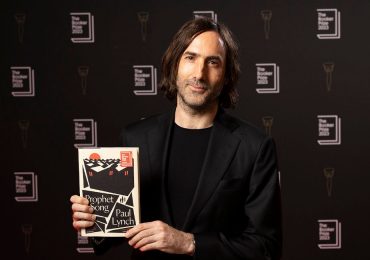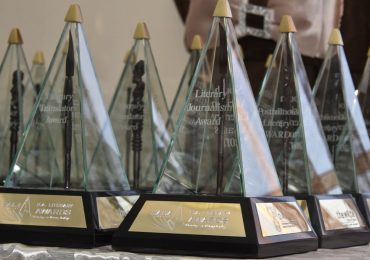‘I dedicate this win to my mother and my father, who never went to school. It just shows what an extraordinary social experiment South Africa is.’
Harry Kalmer and Bongani Ngqulunga were announced as the winners of the 2018 Sunday Times Literary Awards last night.
The awards celebrate the best of South African non-fiction and fiction from the previous year. Each winner receives R100,000.
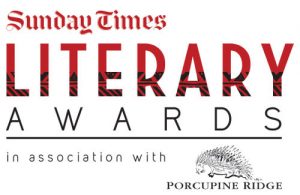
Jennifer Platt, Sunday Times Books Editor, said: ‘This year’s judging was tough but what was evident was the recognition of the art of writing. South Africa’s rich history and diverse stories are being rigorously explored, examined and celebrated.’
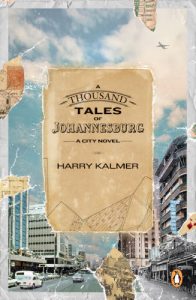 Kalmer won the 18th Barry Ronge Fiction Prize for his book A Thousand Tales of Johannesburg. The judges said: ‘Johannesburg emerges as a fascinating beast of a city, and this is a novel way of celebrating it. The outstanding writing and innovative structure – along with memorable characters – make this an instant classic.
Kalmer won the 18th Barry Ronge Fiction Prize for his book A Thousand Tales of Johannesburg. The judges said: ‘Johannesburg emerges as a fascinating beast of a city, and this is a novel way of celebrating it. The outstanding writing and innovative structure – along with memorable characters – make this an instant classic.
‘The judges responded keenly to this book, a richly faceted portrait of a city and its characters, and praised its originality, its sense of atmosphere and its finely observed writing.’
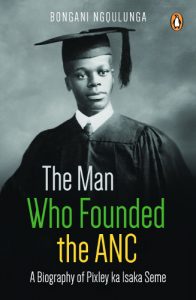 Ngqulunga received the 29th Alan Paton Award for Non-fiction for his book, The Man Who Founded the ANC: A Biography of Pixley ka Isaka Seme. The judges called the book ‘a revelatory, inspiring study of a man and a movement that reverberates right up to today. It is a scholarly, well-researched book that illuminates our flawed roots and our flawed nationhood, presented through the complex and mercurial character of Seme.’
Ngqulunga received the 29th Alan Paton Award for Non-fiction for his book, The Man Who Founded the ANC: A Biography of Pixley ka Isaka Seme. The judges called the book ‘a revelatory, inspiring study of a man and a movement that reverberates right up to today. It is a scholarly, well-researched book that illuminates our flawed roots and our flawed nationhood, presented through the complex and mercurial character of Seme.’
Kalmer is the author of eleven works of fiction and twenty-three plays, and writes mainly in Afrikaans. A Thousand Tales of Johannesburg was first published in Afrikaans in 2014 as ’n Duisend stories oor Johannesburg: ’n stadsroman, and was shortlisted for eight Afrikaans literary awards. Kalmer said he was surprised and pleased at the success of the English edition, which he translated himself.
‘I have this tendency to not arrive for awards I have been awarded, or by the time the awards get handed out be so drunk that I insult everybody in the room,’ Kalmer said. ‘So tonight I made a bit of an effort.
‘If you look in the front of the book it’s dedicated to Sanpat. I wrote this book so that my children could read it, and I wrote this book so that the other half of my family could read it in English. I wrote this book for my English friends, and I was hoping that they would like the book and I would get a couple of extra readers, and now this. It’s really wonderful. Thank you so much.’
Kalmer was shortlisted alongside Maxine Case, for Softness of the Lime; SJ Naudé for The Third Reel; Lesego Rampolokeng, for Bird-Monk Seding; and Francois Smith, for The Camp Whore.
Ngqulunga made a touching speech, dedicating his award to his parents.
‘Let me thank the judges first. I want to thank my wife Nondumiso who is here, because without her this wouldn’t have happened,’ Ngqulunga said. ‘And I would like to thank my fellow finalists. When I read their books I thought I didn’t stand a chance, I mean they were just so extraordinary.
‘I come from a very small place in Zululand called Mahlabathini. My mother and my father never went to school. To be here, to me, is an achievement on its own. And to win … I don’t know what I’m going to tell my two daughters at home, they probably think the book is just pictures. Hopefully one day when they get older they will realise what an achievement this is.
‘I dedicate this win to my mother and my father, who never went to school. It just shows what an extraordinary social experiment South Africa is. Thank you very much.’
Ngqulunga was shortlisted alongside Stuart Doran, for Kingdom, Power, Glory: Mugabe, Zanu and the Quest for Supremacy (1960–87); Thandeka Gqubule, for No Longer Whispering to Power: The Story of Thuli Madonsela; Sisonke Msimang, for Always Another Country: A Memoir of Exile and Home; and Thuli Nhlapo, for Colour Me Yellow: Searching for My Family Truth.
The Alan Paton judging panel consisted of Constitutional Court judge Edwin Cameron; journalist Paddi Clay; and award-winning writer, journalist and filmmaker, Sylvia Vollenhoven.
Last year’s Alan Paton winner was Greg Marinovich, for his book Murder at Small Koppie: The Real Story of the Marikana Massacre.
The Barry Ronge Fiction Prize panel was chaired by popular radio personality, Africa Melane, alongside Love Books owner Kate Rogan and award-winning writer Ken Barris.
Last year’s Barry Ronge winner was Zakes Mda, for his novel Little Suns.
The JRB Editor Jennifer Malec was at the announcement:
Bongani Ngqulunga has won the R100,000 Alan Paton Award for Non-fiction for The Man Who Founded the ANC: A Biography of Pixley ka Isaka Seme! #STAwards2018 pic.twitter.com/vG4TAIZIWk
— Jennifer Malec (@projectjennifer) June 23, 2018
Harry Kalmer has won the R100,000 Barry Ronge Fiction Prize for A Thousand Tales of Johannesburg! #STAwards2018 pic.twitter.com/H09HD0bfcF
— Jennifer Malec (@projectjennifer) June 23, 2018


